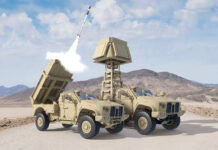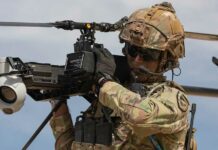Enhanced body armor is extending the protected area covering even more body parts. Yet, even with these improvements, medical facilities are seeing more devastating extremity injuries than ever before, the wounded arrive with severe damages to bones, blood vessels and nerves, resulting from devastated explosions designed to maximize the effect on exposed as well as protected human targets.
First aid kits designed for modern combat are taking advantage of modern technologies to provide rapid and effective life saving treatment by the soldiers or their buddies. Standard equipment for each solider now includes an individual “one-handed” tourniquet, allowing prompt action to reduce blood loss. New bandages impregnated with clotting products are also being used to stop bleeding from severe injuries. Under another program known as “Surviving Blood Loss”, research program funded by DARPA are seeking innovative treatments to be administered by combat medics at the front line, treating severe bleeding on the battlefield. Such therapies could allow injured troops to survive an otherwise fatal blood loss extending the period between severe hemorrhage and irreversible shock or death from minutes for up to six hours. Achieving this goal will allow increased time for evacuation, triage, and initiation of supportive therapies.
Under this research scientists are examining mechanisms to control the metabolic state on demand, including the induction of a hibernation-like state, and the development of low-volume therapies that reduce tissue demand for oxygen and metabolites when full resuscitation is not available. Some studies have shown very promising results. For example, exposure to non-toxic levels of H2S was shown to result in a survival rate greater than 85 percent while treatment with the 17ß female hormone improved the resistance to the effects of shock caused by severe blood loss.
In this series Defense Update covers the following topics:
- Body Armor Suites
- Ergonomic Body Armor Designs
- Ballistic Helmets
- Physiological and Physical Challenge of Body Armor
- Eyewear Protection for the Warfighter
- Tactical Benefits of Laser Eye Surgery (LASIK / PRK)
- Cooling with Phase Change Materials (PCM)
- Improving the Combat Survival Rate Among the Wounded
- Load Carrying Systems for the Infantry
















